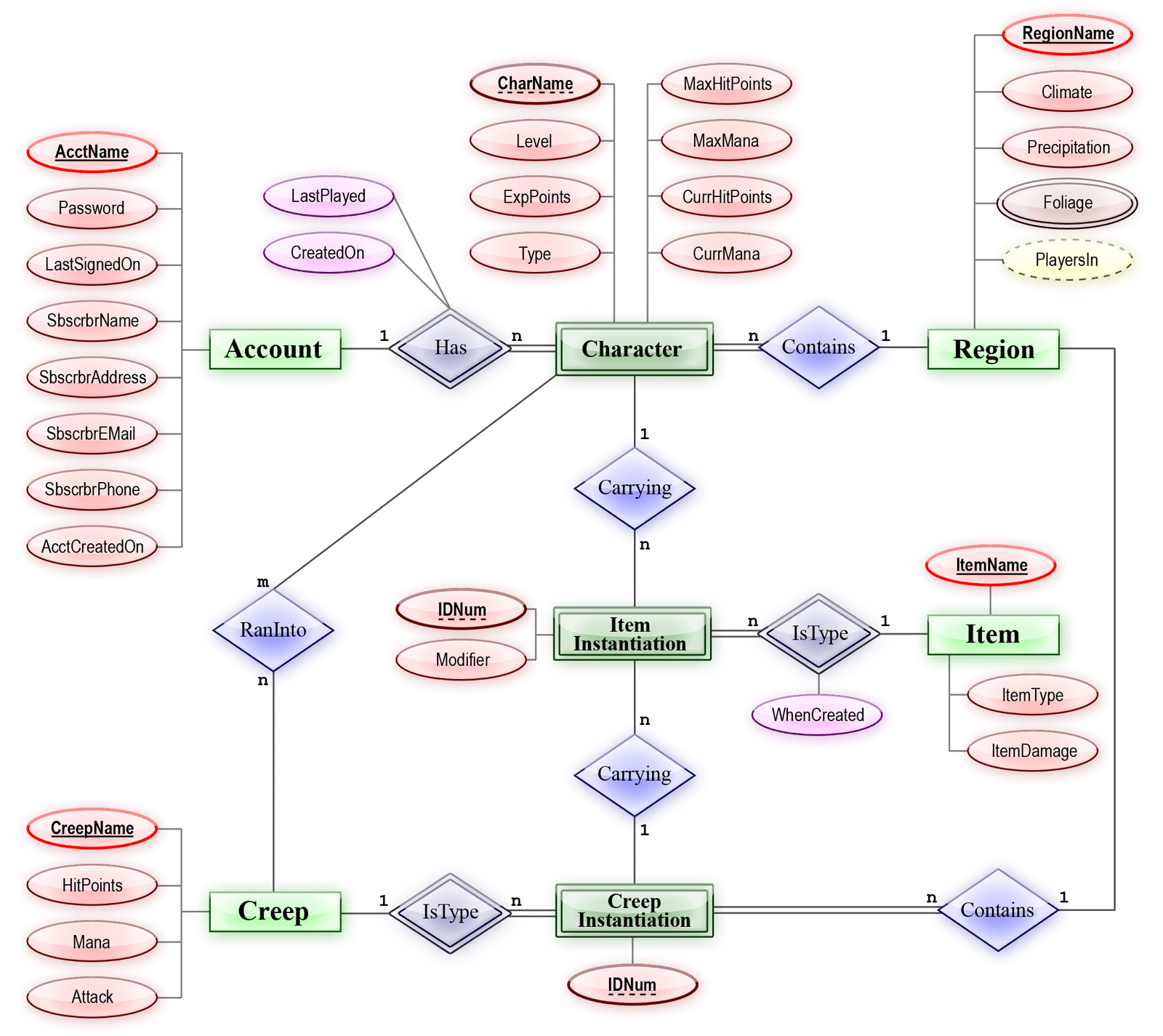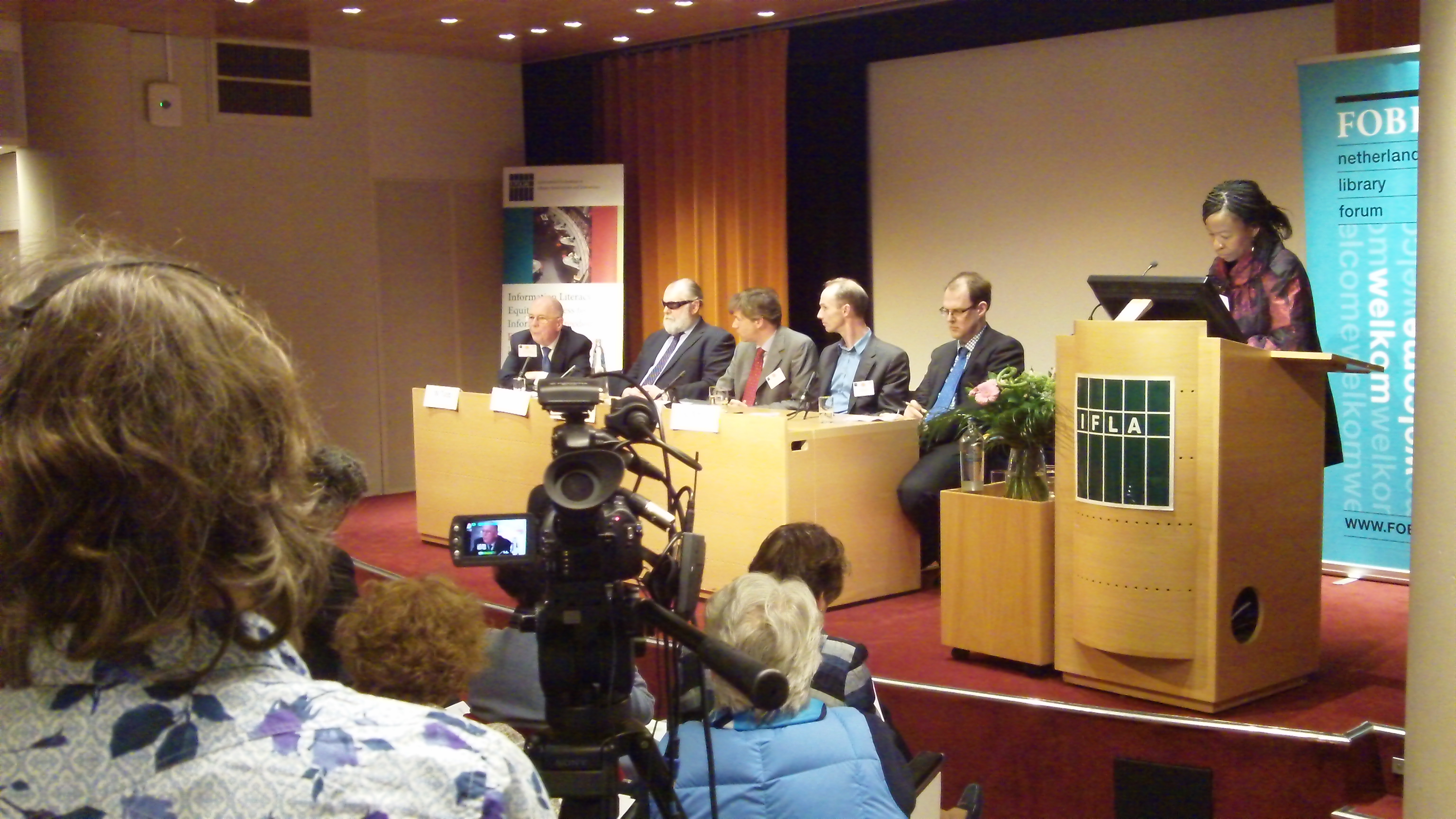|
Functional Requirements For Bibliographic Records
Functional Requirements for Bibliographic Records (FRBR ) is a conceptual entity–relationship model developed by the International Federation of Library Associations and Institutions (IFLA) that relates user tasks of retrieval and access in online library catalogues and bibliographic databases from a user’s perspective. It represents a more holistic approach to retrieval and access as the relationships between the entities provide links to navigate through the hierarchy of relationships. The model is significant because it is separate from specific cataloguing standards such as Anglo-American Cataloguing Rules (AACR), Resource Description and Access (RDA) and International Standard Bibliographic Description (ISBD). User tasks The ways that people can use FRBR data have been defined as follows: to find entities in a search, to identify an entity as being the correct one, to select an entity that suits the user's needs, or to obtain an entity (physical access or licensing). FR ... [...More Info...] [...Related Items...] OR: [Wikipedia] [Google] [Baidu] |
Entity–relationship Model
An entity–relationship model (or ER model) describes interrelated things of interest in a specific domain of knowledge. A basic ER model is composed of entity types (which classify the things of interest) and specifies relationships that can exist between entities (instances of those entity types). In software engineering, an ER model is commonly formed to represent things a business needs to remember in order to perform business processes. Consequently, the ER model becomes an abstract data model, that defines a data or information structure that can be implemented in a database, typically a relational database. Entity–relationship modeling was developed for database and design by Peter Chen and published in a 1976 paper, with variants of the idea existing previously. Today it is commonly used for teaching students the basics of database structure. Some ER models show super and subtype entities connected by generalization-specialization relationships, and an ER model can ... [...More Info...] [...Related Items...] OR: [Wikipedia] [Google] [Baidu] |
FRSAD
Functional Requirements for Subject Authority Data (FRSAD), previously known as Functional Requirements for Subject Authority Records (FRSAR), is a conceptual entity-relationship model developed by the International Federation of Library Associations and Institutions (IFLA) and published in 2010. It is a continuation of the work done on the FRBR model, detailing how "entities that serve as subjects of intellectual or artistic endeavor" can be related and controlled within the bibliographic universe. The model is intended to support global sharing and reuse of subject authority data. The conceptual model Work Work is a "distinct intellectual or artistic creatio(IFLA 1998) Thema Is anything that can be the subject of a work. This is the abstract idea of the aboutness of a given work. Thema is independent of language and discipline(FRSAR 2007) Nomen Any alphanumeric, sound, visual, or any other symbol, sign or combination of symbols by which a thema is known, referred to or a ... [...More Info...] [...Related Items...] OR: [Wikipedia] [Google] [Baidu] |
Library 2
A library is a collection of books, and possibly other materials and media, that is accessible for use by its members and members of allied institutions. Libraries provide physical (hard copies) or digital (soft copies) materials, and may be a physical location, a virtual space, or both. A library's collection normally includes printed materials which may be borrowed, and usually also includes a reference section of publications which may only be utilized inside the premises. Resources such as commercial releases of films, television programmes, other video recordings, radio, music and audio recordings may be available in many formats. These include DVDs, Blu-rays, CDs, cassettes, or other applicable formats such as microform. They may also provide access to information, music or other content held on bibliographic databases. In addition, some libraries offer creation stations for makers which offer access to a 3D printing station with a 3D scanner. Libraries can vary widely ... [...More Info...] [...Related Items...] OR: [Wikipedia] [Google] [Baidu] |
Barbara Tillett
Barbara Ann Barnett Tillett (born 1946) is a librarian and library scholar known for her work on authority control and bibliographic data modeling. Library of Congress Tillett began working at the Library of Congress in 1994. As director of the Library's Integrated Library System (ILS) Program from August 1997 through July 2001, Tillett undertook the massive task of leading the selection and implementation of the Library of Congress' first Integrated Library System An integrated library system (ILS), also known as a library management system (LMS), is an enterprise resource planning system for a library, used to track items owned, orders made, bills paid, and patrons who have borrowed. An ILS is usually .... A library press release referred to the project as the "largest single information technology project in the Library's history." Tillett served as chief of the Library's Cataloging Policy & Support Office, which sometimes put her into conflict with Sanford Berman's ... [...More Info...] [...Related Items...] OR: [Wikipedia] [Google] [Baidu] |
Karen Coyle
Karen may refer to: * Karen (name), a given name and surname * Karen (slang), a term and meme for a demanding white woman displaying certain behaviors People * Karen people, an ethnic group in Myanmar and Thailand * House of Karen, a historical feudal family of Tabaristan, Iran * Karen (singer), Danish R&B singer Languages * Karen languages, or Karenic languages * S'gaw Karen language Places * Karen, Kenya, a suburb of Nairobi * Karen City or Hualien City, Taiwan * Karen Hills, Myanmar * Karen State, a state in Myanmar Film and television * ''Karen'' (1964 TV series), an American sitcom * ''Karen'' (1975 TV series), an American sitcom * ''Karen'' (film), a 2021 American crime thriller * "Karen" (''Daredevil'' episode) * "Karen" (''Wentworth'') Other uses * Karen (orangutan), the first to have open heart surgery * AS-10 Karen or Kh-25, a Soviet air-to-ground missile * Kiwi Advanced Research and Education Network * List of storms named Karen See also ... [...More Info...] [...Related Items...] OR: [Wikipedia] [Google] [Baidu] |
Paris Principles (cataloging)
The Paris Principles (PP), also known as the Statement of Principles, defined the theoretical foundation for the creation of bibliographical cataloging rules for libraries. They were specified and agreed upon in October 1961 at the ''Conference on Cataloguing Principles'' (CCP) of the International Federation of Library Associations and Institutions (IFLA) in Paris. The six-page script stipulated which function and structure library catalogs should have in the future. It was the first international agreement – delegations from 65 countries were involved – on fundamental questions of cataloging, which formed an important basis for the development of regulations such as the German (RAK). For example, determining the function of a library catalog is influential up to now. By using the catalog, the user should be able to determine whether a respective library holds a certain book of which is known: * the author and the title, or * only the title (if the author is not mentioned ... [...More Info...] [...Related Items...] OR: [Wikipedia] [Google] [Baidu] |
International Cataloguing Principles
The (Statement of) International Cataloguing Principles (ICP) define(s) the foundation for the creation of bibliographical cataloging rules for libraries. The ICPs are an initiative of the International Federation of Library Associations and Institutions (IFLA) to modernize and replace the old Paris Principles (cataloging), Paris Principles (PP). The ICPs were drawn up at conferences, the ''IFLA Meetings of Experts on an International Cataloguing Code'' (IME-ICC), on four different continents: in Frankfurt am Main (2003), Buenos Aires (2004), Cairo (2005), Seoul (2006) and Pretoria (2007). First published in 2009, they were revised again in 2014 and 2015. A new ICP edition was published in 2016. The ICPs are intended as a global guideline for the development of cataloging regulations. They aim to achieve uniformity in both formal and subject indexing and have been created for all types of media (not just books). The ICPs build on Functional Requirements for Bibliographic Records ... [...More Info...] [...Related Items...] OR: [Wikipedia] [Google] [Baidu] |
IFLA Library Reference Model
The IFLA Library Reference Model (IFLA LRM) is a conceptual entity–relationship model developed by the International Federation of Library Associations and Institutions (IFLA) that expresses the "logical structure of bibliographic information". It unifies the models of Functional Requirements for Bibliographic Records (FRBR), Functional Requirements for Authority Data (FRAD) and Functional Requirements for Subject Authority Data (FRSAD). The IFLA LRM is intended to be used as the basis of cataloguing rules and implementing bibliographic information systems. It has Library of Congress subject heading number 2017004509. Differences from FR-series models IFLA LRM adds super-classes ''res'' ("thing") and ''agent'' to facilitate formal relationship definitions. ''Time span'' and ''place'' are entities rather than literal values. It uses the same Work, Expression, Manifestation, Item (WEMI) model as FRBR Group 1 entities. The FRBR Group 2 ''corporate body'' and FRAD ''family'' ar ... [...More Info...] [...Related Items...] OR: [Wikipedia] [Google] [Baidu] |
FRBRoo
The FRBRoo ("FRBR-object oriented") initiative is a joint effort of the CIDOC Conceptual Reference Model and FRBR, Functional Requirements for Bibliographic Records international working groups to establish "a formal Ontology (computer science), ontology intended to capture and represent the underlying semantics of bibliographic information and to facilitate the integration, mediation, and interchange of bibliographic and museum information."FRBRoo Introduction . History The idea behind this initiative is that both the library and museum communities would benefit from harmonizing the FRBR and CIDOC reference models to better share library and museum information, particularly in light of the Semantic Web and the overall need to improve the interoperable, interoperability of digital libraries and museum information mana ...[...More Info...] [...Related Items...] OR: [Wikipedia] [Google] [Baidu] |
Functional Requirements For Authority Data
Functional Requirements for Authority Data (FRAD), formerly known as Functional Requirements for Authority Records (FRAR), is a conceptual entity-relationship model developed by the International Federation of Library Associations and Institutions (IFLA) for relating the data that are recorded in library authority records to the needs of the users of those records and facilitate and sharing of that data. The draft was presented in 2004 at the 70th IFLA General Conference and Council in Buenos Aires by Glenn Patton. It is an extension and expansion to the FRBR model, adding numerous entities and attributes. The conceptual work and future implementations are aimed at supporting four tasks, frequently executed by users in a library context—either the library patrons (the first three tasks), or the librarians themselves (all four tasks): * Find: Find an entity or set of entities corresponding to stated criteria; * Identify: Identify an entity; * Contextualize: Place a person, cor ... [...More Info...] [...Related Items...] OR: [Wikipedia] [Google] [Baidu] |
International Federation Of Library Associations And Institutions
The International Federation of Library Associations and Institutions (IFLA) is an international body representing the interests of people who rely on Library, libraries and information professionals. A non-governmental, not-for-profit organization, IFLA was founded in Scotland in 1927 with headquarters at the National Library of the Netherlands in The Hague. IFLA sponsors the annual IFLA World Library and Information Congress, promoting Freedom of information, access to information, ideas, and works of imagination for social, educational, cultural, democratic, and economic empowerment. IFLA also produces several publications, including ''IFLA Journal''. IFLA partners with UNESCO, resulting in several jointly produced manifestos. IFLA is also a founding member of Blue Shield International, Blue Shield, which works to protect the world's cultural heritage when threatened by wars and natural disaster. History IFLA was founded in Edinburgh, Scotland, on 30 September 1927, when lib ... [...More Info...] [...Related Items...] OR: [Wikipedia] [Google] [Baidu] |



